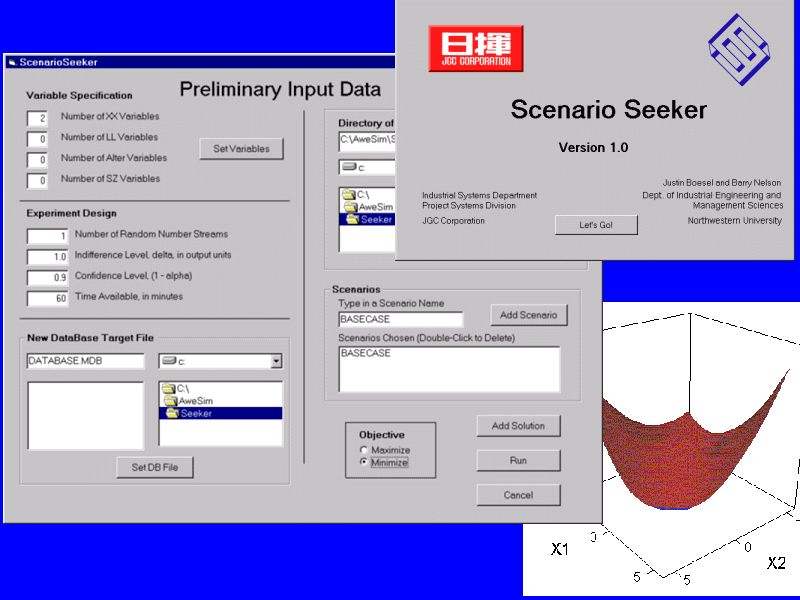

JGC Corporation, a Japanese construction management and consulting firm, challenged the ProLog (Production and Logistics) Lab, established at NU by Professor David Simchi-Levi, to solve a long-standing practical problem in the use of computer simulation: optimization of system design via simulation. JGC makes extensive use of simulation in the design of manufacturing facilities, and JGC's engineers are adept at developing simulation models of potential system designs. However, the engineers have difficulty searching among the many possible detailed system designs, or "scenarios," to find good ones. Such details might include the numbers of machines assigned to different work groups, the scheduling rules used to release orders to the shop floor, or the layout of the facility. JGC was concerned that simple trial and error was time consuming for their engineers while providing no assurance of solving the problem.
ProLog's solution was Scenario Seeker, custom software
developed by the ProLog Lab for JGC. The Scenario Seeker
interfaces with discrete-event simulations written in the
AweSim! simulation environment (Pritsker Corporation, West
Lafayette, IN) and automatically searches for good settings of the
decision variables that define scenarios, where good is determined by
a system performance measure such as cost or throughput. A heuristic
algorithm provides the Scenario Seeker's search engine.
Statistical validity of the search is assured by controlling the
amount of simulation time allocated to each scenario. No commercial
software product currently on the market provides the search
capability and statistical validity that the Scenario Seeker has.
Scenario Seeker can search among a very large number of
potential scenarios for scenarios with larger or smaller system
performance, including scenarios defined by integer, continuous and
categorical decision variables. The Scenario Seeker run
can be terminated at any time and still yield statistically valid
results for all alternatives tested up to that time. The software is
designed for Pentium class PCs running Windows 95 or NT, and it
interfaces with AweSim! 2.0.
To work with ProLog, JGC provided research grants to Professor Barry L. Nelson and Ph.D. candidate Justin Boesel.